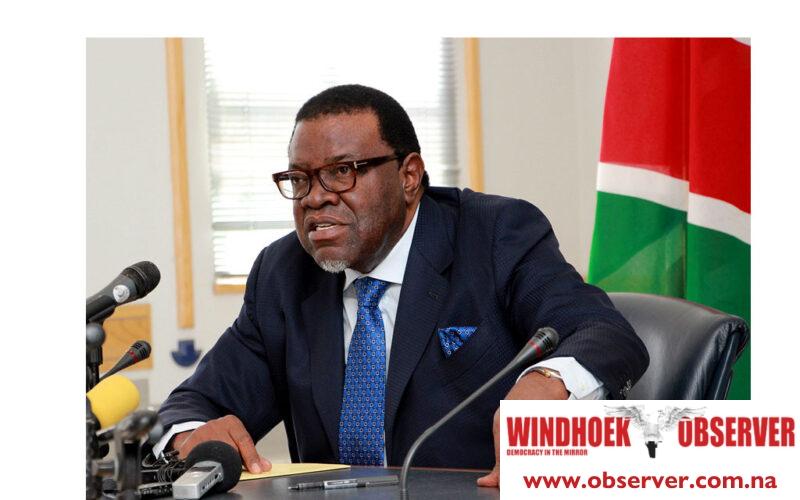Martin Endjala
President Hage Geingob has highlighted the transformative changes within the African diaspora, asserting that the concept formerly known as ‘brain drain’ has evolved into a ‘brain gain.’
He stressed that regardless of one’s birthplace, all Africans must contribute to the continent’s progression, asserting, “Africa is on the march.”
President Geingob articulated this perspective on Friday at the Apollo Theater in New York, USA, during a panel discussion titled “Next Narrative Africa, the Bridge.”
He was accompanied by his counterpart, President Mokgweetsi Masisi of Botswana, United Nations Deputy Secretary-General Amina Mohammed, and the United States Ambassador to the UN, Linda Thomas-Greenfield, along with other world leaders.
He emphasized the necessity for a change in the narratives of Africans, especially among those who have studied abroad, urging them to reinvest their acquired knowledge back into Africa and address the issues they specialize in, rather than remaining passive observers of Africa’s challenges.
“The Economic and Social Council (ECOSOC) is crucial as it defines the role of the diaspora. It is embedded in the African Union constitution or resolutions that the diaspora, being Africans or African Americans, regardless of their birthplace, have a significant role to play,” Geingob highlighted.
President Geingob underscored the vital transformation occurring within the diaspora, terming it a ‘brain gain’ for Africa.
He said, “Africa is open to gain, and there is no more brain drain. If you are educated and affluent, that’s a gain for Africa.”
He urged the diaspora to leverage their acquired knowledge and wealth to play a proactive role in Africa’s development.
He further encouraged Africans to perceive Africa as their continent, asserting that it is open for business and collaboration. He emphasized that the prevalent misrepresentation and unwarranted attacks on Africa need counteraction from Africans themselves.
He urged Africans, especially those in the Diaspora, to defend the continent’s progress made since its initial attainment of freedom over 50 years ago and to forefront the narrative by sharing positive stories about Africa to dispel stereotypes and paint an accurate and positive picture of the continent.
In conclusion, President Geingob’s remarks in New York were a clarion call for Africans, wherever they may be, to assume responsibility and actively contribute to reshaping and revitalizing the narrative and reality of Africa.




